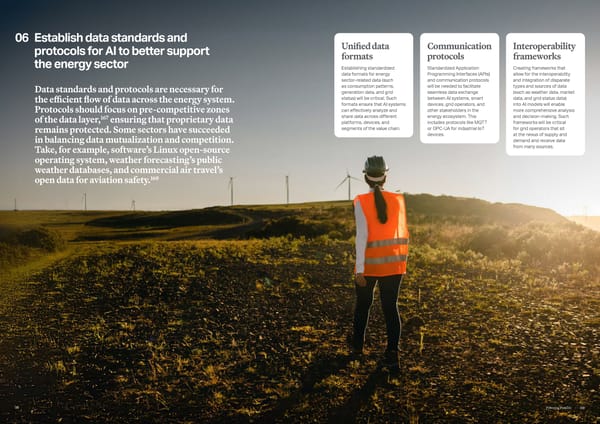Unified data formats Establishing standardized data formats for energy sector-related data (such as consumption patterns, generation data, and grid status) will be critical. Such formats ensure that AI systems can effectively analyze and share data across different platforms, devices, and segments of the value chain. 06 Establish data standards and protocols for AI to better support the energy sector Communication protocols Standardized Application Programming Interfaces (APIs) and communication protocols will be needed to facilitate seamless data exchange between AI systems, smart devices, grid operators, and other stakeholders in the energy ecosystem. This includes protocols like MQTT or OPC-UA for industrial IoT devices. Interoperability frameworks Creating frameworks that allow for the interoperability and integration of disparate types and sources of data (such as weather data, market data, and grid status data) into AI models will enable more comprehensive analysis and decision-making. Such frameworks will be critical for grid operators that sit at the nexus of supply and demand and receive data from many sources. Data standards and protocols are necessary for the efficient flow of data across the energy system. Protocols should focus on pre-competitive zones of the data layer,167 ensuring that proprietary data remains protected. Some sectors have succeeded in balancing data mutualization and competition. Take, for example, software’s Linux open-source operating system, weather forecasting’s public weather databases, and commercial air travel’s open data for aviation safety.168 100 Powering Possible 99
 Powering Possible 2024: AI and Energy for a Sustainable Future Page 50 Page 52
Powering Possible 2024: AI and Energy for a Sustainable Future Page 50 Page 52